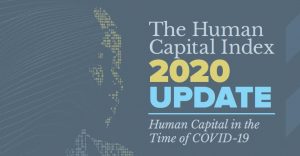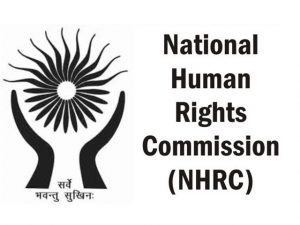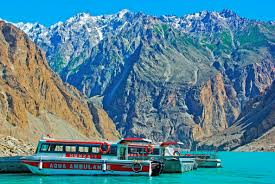Daily Current Affairs for Government Exams:
Today Current Affairs: 18th September 2020 for UPSC IAS exams, State PSC exams, SSC CGL, State SSC, RRB, Railways, Banking Exam & IBPS, etc
Table of Contents
Contents:
- World Bank’s Human Capital Index 2020:
- National Human Rights Commission (NHRC)::
- Gilgit-Baltistan
- Basic Exchange and Cooperation Agreement for Geo-Spatial Cooperation (BECA)
- BRICS National Security Advisers Meet
- Queen’s Counsel:
- Other important current affairs:
1.World Bank’s Human Capital Index 2020:

The World Bank released the Human Capital Index (HCI) report for 2020. The index benchmarks key components of human capital across countries.
- India has been ranked at the 116th position in the HCI 2020.
- Human Capital consists of the knowledge, skills, and health that people accumulate over their lives, enabling them to realize their potential as productive members of society.
- The HCI 2020 includes health and education data of children for 174 countries up to March 2020.
- Thus providing a pre-pandemic baseline.
- It covers 98% of the world’s population.
- The HCI 2020 shows that pre-pandemic, most countries had made steady progress in building human capital of children, with the biggest strides made in low-income countries.
- However, despite this progress, a child born in a typical country could expect to achieve just 56% of their potential human capital, relative to a benchmark of complete education and full health.
- The pandemic puts at risk the decade’s progress in building human capital, including the improvements in health, survival rates, school enrollment, and reduced stunting.
- More than 1 billion children have been out of school and could lose out, on average, half a year of schooling.
- It has created significant disruptions to essential health services for women and children, with many children missing out on crucial vaccinations.
- It has increased income inequality, its economic impact has been particularly deep for women and for the most disadvantaged families, leaving many vulnerable to food insecurity and poverty.
2.National Human Rights Commission (NHRC)::

NHRC has ordered the Assam government to pay ₹1 lakh to a 48-year-old man who was thrashed more than a year ago in Biswanath district for selling cooked beef at his tea stall at a weekly market.
The National Human Rights Commission (NHRC):
- It is a statutory body established on 12th October 1993 under the Protection of Human Rights Act (PHRA), 1993.
- The Act also provides for the creation of the State Human Rights Commission as well.
Composition:
- The chairperson is retired chief justice of India or a judge of the Supreme Court.
- They are appointed by the President on the recommendations of a six-member committee consisting of:
- Prime Minister (head)
- Speaker of the Lok Sabha
- Deputy Chairman of the Rajya Sabha
- Leaders of the Opposition in both the Houses of Parliament
- Union Home Minister.
Term and removal:
- They hold office for a term of three years or until they attain the age of 70 years, whichever is earlier.
- The President can remove them from the office under specific circumstances.
3.Gilgit-Baltistan:

Pakistan has decided to elevate Gilgit-Baltistan’s status to that of a full-fledged province.
- However, India has clearly conveyed to Pakistan that the entire union territories of Jammu and Kashmir and Ladakh, including the areas of Gilgit and Baltistan, are an integral part of the country by virtue of its fully legal and irrevocable accession.
- Gilgit-Baltistan has functioned as a “provincial autonomous region” since 2009.
- It is controlled by Pakistan.
- Besides, in a recent order, the Pakistan Supreme Court also allowed the amendment to the Government of Gilgit-Baltistan Order of 2018 to conduct the general elections in the region.
Gilgit Baltistan:
- It borders China in the North, Afghanistan in the west, and Kashmir in the southeast.
- It shares a geographical boundary with Pakistan-occupied Kashmir, and India considers it as part of the undivided Jammu and Kashmir, while Pakistan sees it as a separate from PoK.
- It has a regional assembly and an elected Chief Minister.
- China-Pakistan Economic Corridor (CPEC) passes through this region.
- The region is home to five of the “eight-thousanders” and to more than fifty peaks above 7,000 meters (23,000 ft).
- Three of the world’s longest glaciers outside the polar regions are found in Gilgit-Baltistan.
- The British sold it, along with the rest of Jammu and Kashmir, to the Dogra ruler of Jammu, Gulab Singh, after defeating the Sikh army in 1846, but retained controlled over the area through a lease extracted from the Maharaja.
- This lease was last renewed in 1935. In 1947, a British army officer of the rank of Colonel imprisoned Maharaja Hari Singh’s governor in the region, and handed over the area for accession to Pakistan.
4.Basic Exchange and Cooperation Agreement for Geo-Spatial Cooperation (BECA),:
The USA is looking forward to India signing the Basic Exchange and Cooperation Agreement for Geo-Spatial Cooperation (BECA), at the next India-USA 2+2 ministerial dialogue likely to be held in October 2020.
2+2 talks:
- They are a dialogue between two appointed ministers from each country. This meeting aims to discuss issues of strategic and security interests between the two countries.
- Defense and foreign ministers or secretaries meet with their counterparts from another country.
- India holds such talks with Japan and Australia, at the foreign secretary and defense secretary level.
India holds ministerial-level talks only with the USA. Apart from India, the United States holds such ministerial dialogues with Australia and Japan also. - The talks were announced in June 2017. The 2+2 dialogue has replaced the Strategic and Commercial Dialogue between the foreign and commerce ministers of the two countries that were held previously.
BECA:
- BECA will allow India to use the geospatial maps of the USA to get pinpoint military accuracy of automated hardware systems and weapons such as cruise and ballistic missiles.
- BECA is an important precursor to India acquiring armed unmanned aerial vehicles such as the Predator-B from the USA. Predator-B uses spatial data for accurate strikes on enemy targets.
- BECA is one of the four foundational military communication agreements between the two countries. The other three being GSOMIA, LEMOA, CISMOA.
- Initially, India had reservations about geospatial mapping on the grounds of national security, but they were later addressed by mutual dialogue and discussion between the two countries.
5.BRICS National Security Advisers Meet:

Russia hosted virtual National Security Advisers (NSAs) meet of the Brazil-Russia-India-China-South Africa (BRICS) grouping.
Key Points
Draft Anti-terrorism Plan:
- The group discussed a draft anti-terrorism strategy that is expected to be approved at an upcoming summit.
- The anti-terrorism plan reflects fundamental aspects of the BRICS states, such as respect for sovereignty and non-interference in internal affairs, adherence to international law, and recognition of the United Nations (UN)’s central role in security matters.
Other Discussed Issues:
- Challenges and threats to global, regional, and national security.
- Called for biological security cooperation and information and communications technology security.
- There was also a proposal to continue work on a system for countering security threats in the sphere of information.
- The Russian side criticized the deployment of weapons in space by the USA and the use of outer space for military operations.
- It also expressed concern over the escalation of tensions with the USA in Iran, Venezuela and Syria.
- It also proposed the creation of new mechanisms in the field of countering epidemiological threats and to conduct expert consultations on biosafety in the BRICS format.
- The five countries are cooperating within the framework of building a multi-polar system based on justice and equality.
- They have also agreed to work on deepening coordination at key international organizations and forums, especially the United Nations (UN).
BRICS:
- BRICS is an acronym for the grouping of the world’s leading emerging economies, namely Brazil, Russia, India, China, and South Africa.
- In 2001, the British Economist Jim O’Neill coined the term BRIC to describe the four emerging economies of Brazil, Russia, India, and China.
- The grouping was formalized during the first meeting of BRIC Foreign Ministers’ in 2006.
- South Africa was invited to join BRIC in December 2010, after which the group adopted the acronym BRICS.
- The chairmanship of the forum is rotated annually among the members, in accordance with the acronym B-R-I-C-S.
6.Queen’s Counsel:
After being stuck on the issue of who will represent Kulbhushan Jadhav in the civilian court in Pakistan, India has invoked the Commonwealth grounds to end the debate over the appointment of his counsel.
- India has called for the appointment of an Indian lawyer or a Queen’s Counsel for the death row prisoner, Kulbhushan Jadhav so that he receives a fair trial in his death sentence review.
Background:
- India’s suggestion comes against the backdrop of negotiations between the two sides to ensure a free and fair trial.
- The International Court of Justice had asked Pakistan to ensure a fair review of the death sentence, but India says Pakistan has not provided “unimpeded” access to him till now.
Queen’s Counsel:
- Queen’s Counsel is a barrister or advocate, appointed Counsel to the UK Crown on the recommendation of the Lord Chancellor.
- Queen’s counsels are recognized in almost all courts around the world.
- A Queen’s Counsel is appointed from within the legal profession on the basis of merit rather than the level of experience.
Other important current affairs:
1.Nationwide, there were less than 34,000 workers registered in 2019-20 under the Inter-State Migrant Workmen (ISMW) Act, 1979, according to a response to a recent Right to Information (RTI) Act request.
- In response to an RTI request filed by activist Anjali Bhardwaj, the Central Labour Commissioner (CLC) provided data showing that only 33,776 migrant workers were registered under the Act in 2019-20, according to monthly reports from regional offices.
- The highest number of registrations came from the Kochi regional office in Kerala, with over 7,800 workers, followed by Dhanbad in Jharkhand (almost 7,496) and Chennai in Tamil Nadu (6,623).
- On the other hand, Delhi, Dehradun, and Patna regions registered zero migrant workers last year, and for the last five years.
- Recently the Labour Ministry told the Lok Sabha that it had no data on the migrant workers who lost their jobs or lives during the lockdown. However, it claimed that over one crore migrant workers returned to their home States during the lockdown.
2.Becoming the first to institutionalize snake handling in the country, the Kerala Forest Department has framed guidelines for rescuing snakes from human-dominated places and releasing them in uninhabited areas.
- The move to certify snake handlers comes amid allegations of unscientific approaches by snake catchers that tend to create stress to the animal and pose risk to their and others’ lives. Kerala has reported 334 deaths and 1,860 other cases of snake-bites in the past three years.
- The guidelines make it mandatory for snake handlers, aged between 21 and 65 years, to seek certification. The applications will be screened by the Assistant Conservators of Forest (ACF, Social Forestry) to prepare lists of snake handlers in each district.
- Those short-listed will be required to undergo mandatory training on the safe and scientific handling of snakes.
- While the certification will be valid for five years, the respective ACFs can withdraw or cancel the same if the snake handler is found to be involved in any illegal or unethical practices.
- Rescued snakes will also have to be released in the presence of forest officials at the earliest. If found injured, the snake can be released only after ascertaining its fitness. Non-native species, however, cannot be released and have to be handed over to the Forest Department.
3.The Delhi Metro Rail Corporation (DMRC) launched ‘i-ATS’, an indigenously-built communication-based train control signaling technology for the metro.
- The i-ATS (Automatic Train Supervision) is a computer-based system that manages train operation. This system is indispensable for high-density operations such as the metro, where services are scheduled every few minutes.
- i-ATS is indigenously-developed technology, which will significantly reduce the dependence of Indian metros on foreign vendors dealing with such technologies.
- It can work with train control and signaling systems of various suppliers. Additionally, it is suitable for introduction in Indian Railways, which is now introducing centralised train control on a large scale that uses ATS functions.
4.International Equal Pay Day is being celebrated for the first time ever on 18 September 2020.
- On November 15, 2019, the UN General Assembly adopted a resolution proclaiming September 18 as International Equal Pay Day.
- The resolution was introduced by the Equal Pay International Coalition (EPIC), with the support of Canada, Australia, Germany, Panama, New Zealand, South Africa, and Switzerland. EPIC is led by the International Labour Organization, UN Women, and partners. Its goal is to achieve equal pay for women.
- International Equal Pay Day represents the longstanding efforts towards the achievement of equal pay for work of equal value.
- According to the United Nations (UN), Across all regions, women are paid less than men, with the gender pay gap estimated at 23 percent globally.
5.Rajasthan Government is acting proactively to protect the wetland ecosystem of the state with 52 wetlands earmarked for time-bound development.
- In Rajasthan, Sambhar Lake and Keoladeo Ghana National Park have the prestigious tag of ‘Wetland of International Importance’, by the Ramsar Convention on Wetlands.
- Wetlands are defined as: “lands transitional between terrestrial and aquatic eco-systems where the water table is usually at or near the surface or the land is covered by shallow water”.
- Wetlands are highly productive ecosystems that provide the world with nearly two-thirds of its fish harvest.
- Wetlands play an integral role in the ecology of the watershed. The combination of shallow water, high levels of nutrients is ideal for the development of organisms that form the base of the food web and feed many species of fish, amphibians, shellfish, and insects.
- Wetlands’ microbes, plants, and wildlife are part of global cycles for water, nitrogen and sulphur. Wetlands store carbon within their plant communities and soil (carbon sequestration) instead of releasing it to the atmosphere as carbon dioxide.
- They provide habitat for animals and plants and many contain a wide diversity of life, supporting plants and animals that are found nowhere else.
- They are also an important source of groundwater recharge.
6.Union Minister of Textiles provided information on the implementation of the Scheme for Integrated Textile Park (SITP), in Rajya Sabha.
- SITP was launched in 2005.
- Objectives: To provide the industry with a world-class state of the art infrastructure facilities for setting up their textile units.
- To attract foreign investors to the domestic textile sector.
- Under the SITP, infrastructure facilities for setting up textile units are developed in a Public-Private-Partnership (PPP) model.
- The Government of India grants up to 40% of the project cost.
- However, it grants up to 90% of the project cost for the first two projects (each) in the North Eastern States, Himachal Pradesh, Uttarakhand, and Union Territory of Jammu & Kashmir and Union Territory of Ladakh.
- The government’s support is limited to Rs. 40 crores for each textile park.
- Each Integrated Textile Park (ITP) under the scheme would normally have 50 units.
- The number of entrepreneurs and the resultant investments in each ITP could vary from project to project.
7.The Government of India has created the Indian National Space Promotion and Authorization Center (IN-SPACe), an independent nodal agency under the Department of Space.
- This move is a part of the reforms announced under the economic stimulus packages.
- IN-SPACe is to be established as a single-window nodal agency, with its own cadre, which will permit and oversee the activities of private companies.
- This is part of reforms aimed at giving a boost to the private sector participating in space-related activities or using India’s space resources.
8.India has entered into Air Bubble agreements with 10 countries viz. USA, Canada, France, Germany, UK, Maldives, UAE, Qatar, Afghanistan, and Bahrain, till 13.09.2020.
- An air bubble is essentially a temporary arrangement between two countries to restart commercial flight services at a time when regular international flights are suspended due to COVID-19.
- Under the arrangement, airlines from both countries are allowed to operate, unlike Mission Vande Bharat where only Indian air carriers were allowed to operate flights.
9.The Singapore Convention on Mediation came into force and will provide a more effective way for enforcing mediated settlements of corporate disputes involving businesses in India and other countries that are signatories to the Convention.
- Also known as the United Nations Convention on International Settlement Agreements Resulting from Mediation, this is also the first UN treaty to be named after Singapore.
- With the Convention in force, businesses seeking enforcement of a mediated settlement agreement across borders can do so by applying directly to the courts of countries that have signed and ratified the treaty, instead of having to enforce the settlement agreement as a contract in accordance with each country’s domestic process.
- The harmonized and simplified enforcement framework under the Convention translates to savings in time and legal costs, which is important for businesses in times of uncertainty, such as during the current COVID-19 pandemic.
- Singapore had worked with the UN Commission on International Trade Law, other UN member states and non-governmental organizations for the Convention.




